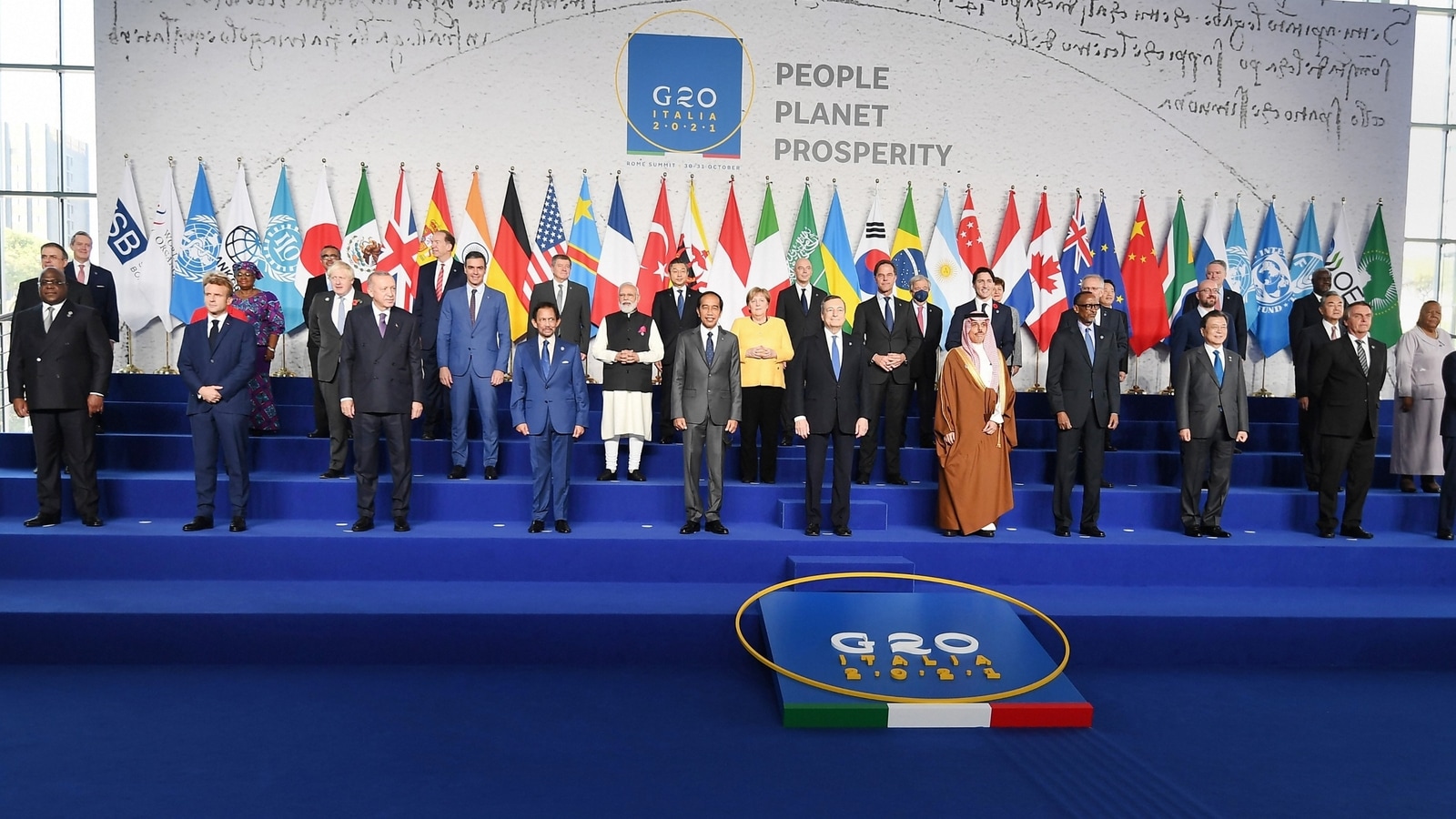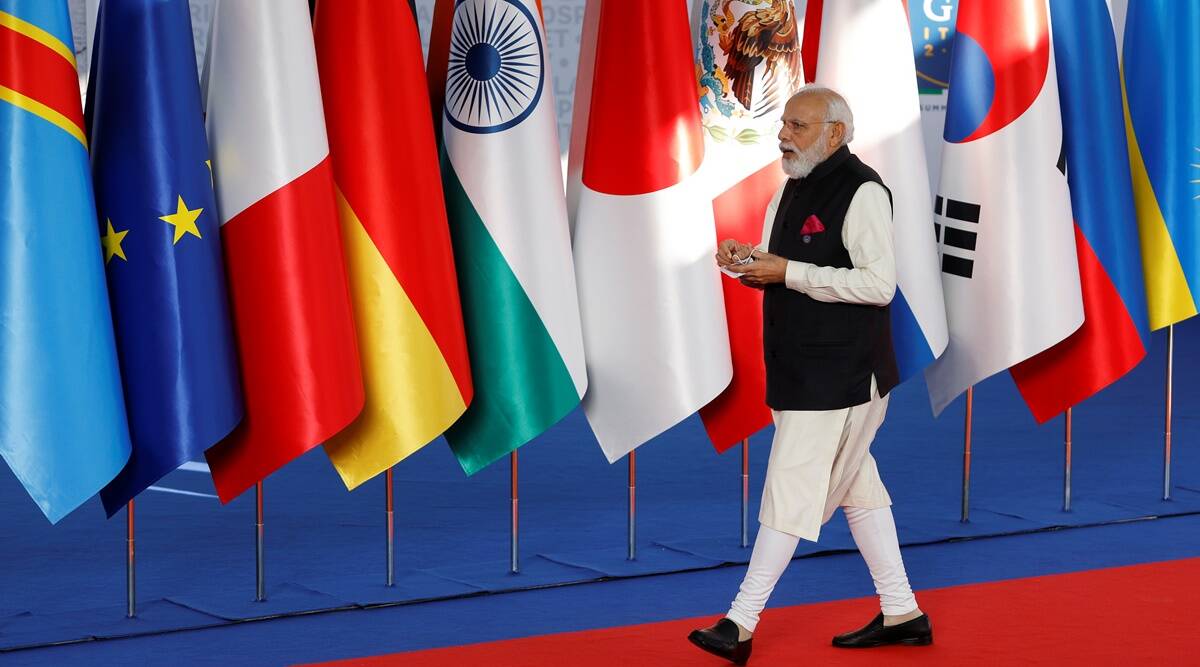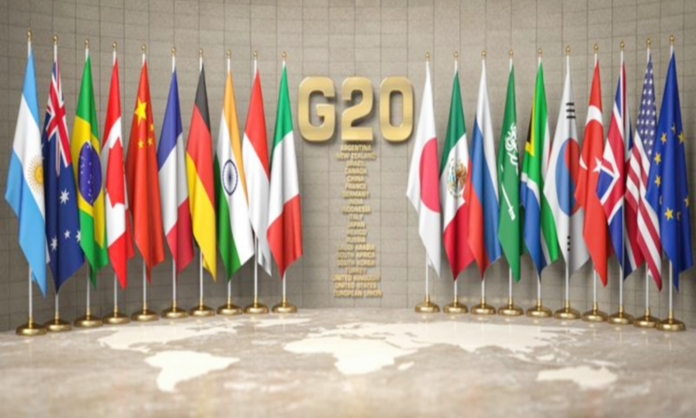Under the presidency of India, the second Trade and Investment Working Group meeting of the G20 will commence in Bengaluru on Tuesday. The three-day meeting will bring together over 100 delegates from G20 member countries, invitee countries, regional groupings, and international organizations. The primary focus of the discussions will revolve around reforming the multilateral trading system, enhancing the participation of Micro, Small, and Medium Enterprises (MSMEs) in global trade, fostering trade for sustainable growth and prosperity, and optimizing logistics for efficient trade operations.
Technology will kick off
The Ministry of Commerce and Industry has announced that a seminar on trade and technology will kick off the first day of the meeting. The seminar will explore themes such as the transformative impact of technology on trade and the role of technology in driving inclusive growth. Distinguished domain experts, academicians, and practitioners will engage in two-panel discussions to deliberate on these topics.

Following the seminar, the delegates will have the opportunity to participate in a guided city tour, immerse themselves in the local culture through a cultural program, and enjoy a Gala Dinner hosted in their honor.
A critical aspect to be addressed during the meeting is the reform of the World Trade Organization (WTO), which stands as one of the key priorities pursued by India’s G20 Presidency. A dedicated technical session has been scheduled for May 24, 2023, to facilitate discussions on WTO Reform.
During the subsequent days of the meeting, presentations will focus on the deliverables related to the digitalization of essential paper documents used in cross-border trade, such as Bills of Lading and Certificates of Origin. Additionally, an action plan will be developed to establish a Meta Information Portal for MSMEs, a framework for mapping Global Value Chains (GVCs), and a compendium of best practices on Mutual Recognition Agreements (MRAs). Furthermore, the discussions will encompass the G20 Regulatory Dialogue.
These deliverables have emerged from the fruitful deliberations that took place during the first meeting held in Mumbai in March earlier this year. They aim to address the challenges faced in accelerating global trade and investment while fostering inclusivity, transparency, and sustainable growth.
India’s G20 Presidency seeks to foster a shared understanding among the participants regarding the obstacles hindering global trade and investment acceleration. The overarching objective is to leverage existing opportunities effectively, enabling growth that is both inclusive and transparent.
The second Trade and Investment Working Group meeting, organized under India’s G20 Presidency, is set to commence in the vibrant city of Bengaluru on Tuesday. This highly anticipated three-day gathering will bring together more than 100 delegates representing G20 member countries, invitee countries, regional groupings, and international organizations. The primary objective of the meeting is to foster discussions on key areas such as reforming the multilateral trading system, empowering Micro, Small, and Medium Enterprises (MSMEs) in global trade, promoting trade for sustainable growth, and optimizing logistical operations.
In accordance with the Ministry of Commerce and Industry, the first day of the meeting will feature an insightful seminar focused on trade and technology. Esteemed experts, academicians, and practitioners will engage in two-panel discussions that explore the transformative impact of technology on trade and its vital role in driving inclusive growth. These discussions aim to shed light on innovative approaches to harnessing technology for the benefit of global trade.
Following the seminar, delegates will have the opportunity to experience the rich cultural heritage of Bengaluru through a guided city tour and engage in a special cultural program. The evening will culminate in a Gala Dinner, where delegates can further exchange ideas and build networks in a relaxed and convivial setting.
India’s priority G20
A significant aspect to be addressed during the meeting is the pressing issue of World Trade Organization (WTO) reform. As a key priority of India’s G20 Presidency, a dedicated technical session is scheduled for May 24, 2023, to delve into the complexities of WTO reform and identify potential avenues for progress.
)
Over the course of the subsequent two days, the focus will shift to presentations and discussions on various deliverables. These include exploring the digitalization of essential paper documents utilized in cross-border trade, such as Bills of Lading and Certificates of Origin. Additionally, an action plan will be developed to establish a Meta Information Portal for MSMEs, facilitating their integration into global value chains. The sharing of best practices regarding Mutual Recognition Agreements (MRAs) will be compiled into a comprehensive compendium, and the G20 Regulatory Dialogue will be an essential topic of discussion.
These deliverables have emerged from the fruitful deliberations that took place during the first meeting held in Mumbai earlier this year. They represent tangible steps towards overcoming barriers to global trade and investment, with a particular emphasis on inclusivity, transparency, and sustainable growth.
India’s G20 Presidency is driven by the vision of cultivating a shared understanding among participants, focusing on the challenges faced in accelerating global trade and investment. By leveraging existing opportunities and harnessing collective wisdom, the aim is to foster an environment that enables inclusive and transparent growth on a global scale.
The meeting aims to address critical issues and facilitate discussions on key areas of focus. One of the primary objectives is to reform the multilateral trading system, recognizing the need for an updated and inclusive framework that promotes fair and balanced trade practices among nations.
Another significant focus of the meeting is to enhance the participation of Micro, Small, and Medium Enterprises (MSMEs) in global trade. MSMEs play a crucial role in driving economic growth and job creation, particularly in developing countries. By identifying ways to empower and integrate MSMEs into the global value chains, the G20 aims to foster their growth and ensure their inclusion in the benefits of international trade.

Furthermore, the discussions will revolve around fostering trade for sustainable growth and prosperity. This includes exploring avenues for promoting sustainable and responsible trade practices, addressing environmental concerns, and leveraging trade as a means to achieve the Sustainable Development Goals (SDGs). The G20 recognizes the importance of sustainable trade in ensuring long-term economic and environmental well-being.
Optimizing logistics for efficient trade operations is another critical aspect that will be addressed during the meeting. Enhancing trade facilitation measures, reducing trade barriers, and streamlining customs procedures are key elements to improve the efficiency and cost-effectiveness of cross-border trade. By optimizing logistics, the G20 aims to promote smoother trade flows and enhance connectivity among nations.
The Ministry of Commerce and Industry has planned a seminar on trade and technology as part of the first day of the meeting. This seminar will bring together distinguished domain experts, academicians, and practitioners to delve into the transformative impact of technology on trade. Discussions will also focus on the role of technology in driving inclusive growth, ensuring that advancements in technology benefit all stakeholders and contribute to sustainable development.
To provide a glimpse of the vibrant local culture, the delegates will have the opportunity to participate in a guided city tour and engage in a cultural program. These activities will offer a unique perspective on Bengaluru’s rich heritage and provide an opportunity for delegates to connect with the local community.
Throughout the meeting, the participants will work towards developing actionable plans and deliverables. These include digitalizing essential paper documents used in cross-border trade, establishing a Meta Information Portal for MSMEs, mapping Global Value Chains (GVCs), compiling best practices on Mutual Recognition Agreements (MRAs), and engaging in the G20 Regulatory Dialogue. These initiatives aim to enhance trade efficiency, reduce barriers, and promote transparency and cooperation among G20 member countries.
The second Trade and Investment Working Group meeting builds upon the progress made during the first meeting held in Mumbai earlier this year. The deliverables and discussions arising from that meeting have paved the way for tangible actions and outcomes to address the challenges faced in global trade and investment.

India’s G20 Presidency is committed to fostering a shared understanding among participants and leveraging the collective wisdom to drive inclusive and transparent growth. By focusing on key areas of reform, empowering MSMEs, promoting sustainable trade, and optimizing logistics, the G20 aims to create an enabling environment for global trade and investment that benefits all nations and contributes to long-term prosperity.

